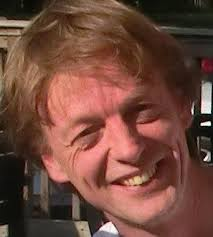
AGE AND AGING
Most Dutch arrived in the 1950-60s at an age of 20. This means that soon the majority of
Dutch emigrants will have retired by now, or worse.... Migration years tend to count
as ' tropical years' as most bodies go through a lot in the years of
adjustment and construction: most Duch Australians are own home owners, and many the
building themselves....in addition to starting up their own businesses.
LANGUAGE
The Dutch tend to speak English at home, even in families where both parents are Dutch.
The Dutch tend to raise their kids as monolingual English speakers. This is unique in the world, but not unique to Dutch migrants; the same happened in
RSA, Canada, the US and other 50's countries. Some notable exceptions exist though,
like Hollambra in Brasil and Little Groningen in Tasmania. In these sites, Dutch migrants moved in complete communities,
and managed to become self-reliant very quickly.
EDUCATION
Most Dutch emigrants have secondary education and an additional skill.
They tend to be self-employed, and not university trained but profesionally trained.
POLITICS
Emigrants tend not to get involved, certainly not to the same extent as for instance the
Greek and Italian emigrants. An additional problem is the extensive 'verzuiling' which
causes internal devisions which to an outsider is confusing. Applications from
Limburger groups are rejected because these tend not to "benefit the Dutch emigrant
community at large". Recent changes in the population as a result of aging is
rapidly reducing this barrier; elderly Dutch no longer find it a major hurdle that they share
Dutch-language elderely homes with Dutch migrants from othr regions.
REFERENCES:
For a recent collection of articles, books and other publication, see Ammerlaan's 1996 Dissertation on the Dutch in Australia.
VICTORIA
Petra Neelemens has been one of the driving forces towards Dutch care. She is chief
executive of the Dutch Australian Community Action (DACA), an amalgamation of 3
Dutch-specific retirement vollages (Beatrix, Providence, Avondrust). Dutch Care has
73 hostel places plus 89 Independent Units. Petra's address is P.O. Box 109 Montrose VIC 3765.
TASMANIA
NEW SOUTH WALES
Sydney still has several Dutch specific residential retirement places. the Federation of Netherlands
Societies provides homecare and receives funding for 50 Aged Care Packages.
Manager is Colin Zentveld, 114-116 Henrey St. Penrith 2750 NSW.
SOUTH AUSTRALIA
QUEENSLAND
Brisbane has a Dutch specific retirement village, consisting of independent living units and a hostel (Prins Willem Alexander Village, 62 Collingwood Rd., Birkdale 4159).
Noosa has the Prins Bernhard Village (PO Box 1407 Noosa 4567 tel/fax 074 474 241) of which John de Roo is secretary.
The Ethnic Community Council in Queensland provides homecare for elderly Dutch Australians if language problems are experienced (manager:
Karen Hungerford, ECCQ Community Options Program, P>O Box 5199, West End 4101).
Brisbane also has a Friendly Visiting Scheme in which peopl;e of the same background visit one another. There is a Dutch Helpline (07 3393 0079) to assist in emergencies.
WESTERN AUSTRALIA
NORTHERN TERRITORIES
CONFERENCES
In October 1996 the Dutch organisationsl hosted a conference on
Dutch Care in Australia, covering all aspects. Aim is to exchange ideas, experiences and to promote
cooperation.
Details from Annelies Zeissink, P.O. Box 235, Ashgrove 4060.
CANADA
SOUTH AFRICA
UNITED STATES
AUSTRALIANS and AUSTRALIANS IN EUROPE
Expats organisations like Aussie Expats offer their own
collection of classes, churches, sports, things to see.
Details about Australian food in Europe, for instance traditional food available thru
Clearwater Hampers at a cost of about e 100.00.
My talk on Australian English, given at the 75th aniversary of the University of Nijmegen,
October 1998.